Best Practices: What Causes Abnormal Noise in a High-Pressure Pump?| Insights by AQUALITEK
Abnormal noise from a high-pressure pump is a critical warning sign in an RO system. It may indicate mechanical issues, cavitation, air intrusion, poor lubrication, or system design problems. This article explains the most common causes, risks, and troubleshooting actions.
- What Could Be Causing Abnormal Noise From the High-Pressure Pump?
- 1. Cavitation — One of the Most Common and Dangerous Causes
- 2. Air Entrainment in the Pump
- 3. Worn or Damaged Bearings
- 4. Impeller Wear, Damage, or Blockage
- 5. Motor Issues — Misalignment or Loose Coupling
- 6. Pipeline Vibration or Resonance
- 7. Foreign Objects Inside the Pump
- 8. Overheating or Poor Lubrication
- Conclusion
What Could Be Causing Abnormal Noise From the High-Pressure Pump?
The high-pressure pump is the heart of any industrial reverse osmosis (RO) system. When abnormal noise appears—whether it’s knocking, rattling, whining, grinding, or vibration—it is a serious indicator that something is wrong.
Ignoring unusual pump noise can lead to catastrophic damage, including bearing failure, impeller wear, motor burnout, and even membrane damage due to unstable pressure.
Below are the leading causes and corresponding corrective actions.
1. Cavitation — One of the Most Common and Dangerous Causes
Cavitation occurs when the pump is starved of water, causing vapor bubbles to form and collapse violently inside the pump.
Typical symptoms
•Loud rattling or “marble rolling” noise
•Strong vibration
•Drop in inlet pressure
•Reduced flow
Root causes
•Low feed tank water level
•Blocked inlet pipe or filter
•Insufficient NPSH (Net Positive Suction Head)
•Inlet valve not fully open
•Air entering on the suction side
Solution
•Increase feed water supply
•Clean or replace pre-filters
•Shorten or enlarge the suction pipeline
•Remove air from the system
2. Air Entrainment in the Pump
Air bubbles entering the pump cause intermittent knocking and unstable flow.
Possible reasons
•Leaks in the suction pipeline
•Low water level causing vortexing
•Poor sealing at flanges or fittings
•Air not removed after maintenance
Solution
•Re-tighten all connections
•Repair suction pipeline leaks
•Raise the feed tank water level
•Vent the pump until no air remains
3. Worn or Damaged Bearings
Bearing wear is one of the most common mechanical noise sources.
Indicators
•High-pitched whining
•Sharp metallic noise
•Increased vibration
Causes
•Long operating hours
•Poor lubrication
•Contaminated grease
•Misalignment
Solution
•Replace damaged bearings
•Re-lubricate with the correct grease
•Check motor and pump shaft alignment
4. Impeller Wear, Damage, or Blockage
A worn or damaged impeller causes uneven rotation and abnormal vibration.
Causes
•Sediment or solids entering the pump
•Corrosion
•Cavitation damage
•Excessive scaling
Solution
•Inspect and clean the impeller
•Replace damaged or corroded parts
•Ensure pretreatment prevents solids intrusion
5. Motor Issues — Misalignment or Loose Coupling
When the motor and pump shafts are not aligned, abnormal noise results.
Symptoms
•Vibration at startup
•Periodic knocking
•Visible coupling wobble
Common reasons
•Installation errors
•Thermal expansion
•Foundation settling
•Loose bolts
Solution
•Re-align motor and pump shafts
•Tighten base and coupling bolts
•Check for uneven foundation or soft foot
6. Pipeline Vibration or Resonance
Sometimes the noise is not from the pump itself but from the connected piping.
Causes
•High-pressure pulsation
•Poor pipeline support
•Loose clamps
•Thin-wall pipes resonating
Solution
•Add or tighten pipe supports
•Use vibration isolators
•Check for flow restrictions
7. Foreign Objects Inside the Pump
Even small debris can create grinding or scraping noises.
Sources
•Rust flakes
•Loose gaskets or sealing pieces
•Sand or particulate from pretreatment failure
Solution
•Stop the system immediately
•Inspect and clear the pump
•Repair pretreatment deficiencies
8. Overheating or Poor Lubrication
Insufficient lubrication leads to friction and mechanical noise.
Why it happens
•Wrong lubricant type
•Grease degradation
•Excessive operating temperature
•Long maintenance intervals
Solution
•Re-lubricate according to manufacturer specs
•Improve cooling or ventilation
•Implement scheduled maintenance
Conclusion
Abnormal noise from a high-pressure pump is always a warning sign. Whether caused by cavitation, air intrusion, mechanical wear, misalignment, or system design issues, quick and accurate diagnosis is essential.
By performing regular maintenance, ensuring proper pretreatment, eliminating air, and monitoring pump conditions, you can protect your pump, extend membrane life, and maintain stable RO system performance.




Request More Information or Expert Advice
Share a few details, and we’ll provide deeper insights, tailored suggestions, or product support.

Our 500 LPH Reverse Osmosis (RO) System is engineered to provide high-quality purified water for commercial applications. Designed with advanced RO technology, durable components, and a user-friendly interface, this system ensures consistent performance, low maintenance, and long-term reliability.
With its compact design and robust skid-mounted frame, it’s an excellent choice for businesses that demand efficiency and quality in water purification.

TWV series Reverse Osmosis (RO) systems are pre-engineered and pre-assembled units with 2.5”/4” membrane housings(single element type)for tap water(lower TDS).They are designed for overall superior performance, high recovery rates and offer great savings with low maintenance and operation costs.

TWF series Reverse Osmosis (RO) systems are pre-engineered and pre-assembled units with 4” membrane housings(multiple elements type) for tap water(lower TDS) .The medium large volumes can help meet your a variety of commercial and industrial applications. They are designed for overall superior performance, high recovery rates and offer great savings with low maintenance and operation costs.

TWE series Reverse Osmosis (RO) systems are pre-engineered and pre-assembled units with 8” membrane housings for tap water (lower TDS). The large volumes can help meet your a variety of industrial applications. They are designed for overall superior performance, high recovery rates and offer great savings with low maintenance and operation costs.
© 2026 AQUALITEK. All rights reserved.

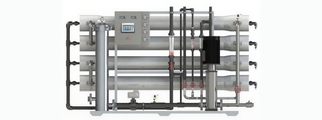
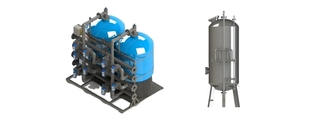
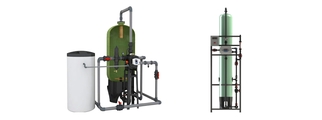
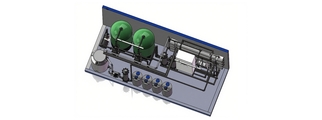
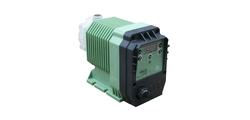
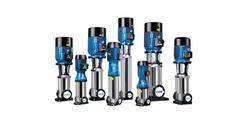
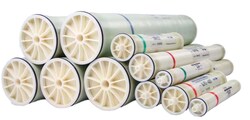
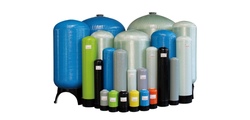
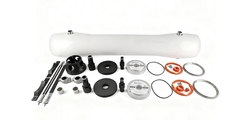
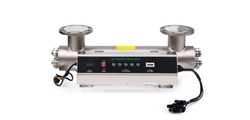
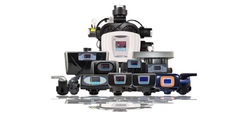
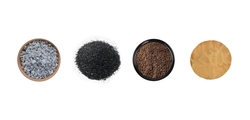
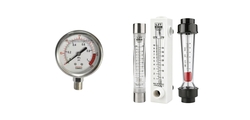
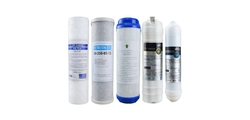
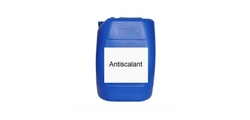
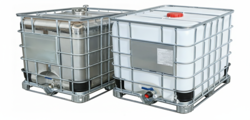
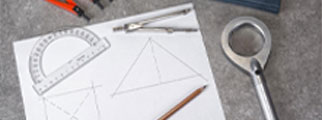



AQUALITEK- Aimee Hoo
AQUALITEK - Aimee Hoo